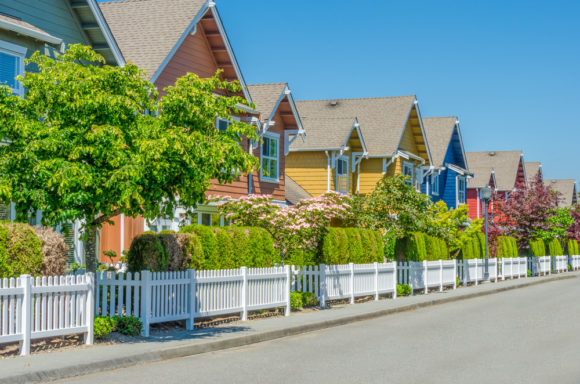The homeowners insurance rate increase disagreement between the North Carolina Department of Insurance (NCDOI) and the insurance industry is not over.
The North Carolina Rate Bureau (NCRB), which files rates with NCDOI on behalf of insurers writing in the state, is calling foul on a recent Court of Appeals decision agreeing with the state insurance commissioner’s rejection of a nearly 25 percent homeowners insurance rate increase. NCRB now wants to take its fight to the North Carolina Supreme Court.
The case refers to Insurance Commissioner Wayne Goodwin’s rejection of the bureau’s 2014 homeowners 24.9 percent insurance rate increase filing. NCRB sought the increase on behalf of nearly 100 companies selling homeowners policies in the state. Insurers said at the time the increase was needed to cover expectations of a sharp rise in projected repair and replacement costs and the growing risk of catastrophic losses.
Goodwin, however, disagreed with NCRB’s assessment, saying he found “no factors or events justified the excessive costs required by the insurance companies.” He instead ordered an average rate change of 0.0 percent on homeowners policies beginning in June 2015.
NCRB appealed his decision to the State Court of Appeals in Jan. 2014, but the court sided with Goodwin in August.
“The order reflects a careful, thoughtful, and thorough consideration of the evidence,” Judge J. Douglas McCullough wrote for the three-judge panel in its ruling, as reported by The Associated Press.
In its Sept. 6 request for discretionary review, NCRB says the appeals court erred in siding with Goodwin. NCRB says the appeals court’s ruling violates the constitutional mandate under the “takings clause” of the Fifth Amendment and the “due process clause” of the Fourteenth Amendment that a “regulated firm is entitled to an opportunity to earn a rate of return commensurate with the level of profit demanded by the investment market on business ventures of comparable risk…”
NCRB maintains that the rate increase requested back in 2014 on homeowners insurance policies is necessary for insurers to maintain the “cost of equity,” which is the prospective return that investors expect to earn in the marketplace on investments of comparable risk.
“A regulated industry is entitled to earn a profit equivalent to the returns demanded by industries of comparable risk. In North Carolina, homeowners insurance is a regulated industry. North Carolina homeowners insurers are thus entitled to have rates set that allow them the opportunity to earn such a profit,” NCRB said.
The bureau said since then a number of homeowners insurers have been issuing policies to customers with “consent-to-rate” provisions in order to set rates at what they say is necessary for them to continue providing coverage.
NCRB said the number of consent-to-rate policies now comprises more than a third of homeowners policies in the state. NCRB also contends that the state’s residual market has also increased exponentially.
“In an otherwise competitive marketplace, where approximately 95 homeowners insurers write homeowners coverage in North Carolina, the fact that 40 percent to 70 percent of policies in beach and coastal counties are written in the residual ‘market of last resort’ and as many as one-third of homeowners policies are being written pursuant to consent to rate procedures is compelling evidence that homeowners insurers are unable to earn a reasonable profit at the rates approved by the Commissioner,” NCRB said.
Insurers said the rate increases were necessary for them to make a profit that would satisfy their cost of equity. However, the rate rejection and subsequent order for an average increase of 0 percent meant a 7.6 percent return of net worth for insurers. NCRB says that is less than the 9.1 percent to 12.8 percent net worth range that insurers said was necessary for them to meet the minimum constitutional standard.
“The Court of Appeals’ judgment disapproving the filed underwriting profit provision and affirming the Commissioner’s ordered profit provision is in violation of the United States Constitution and should be reviewed and reversed by this Court,” NCRB said in its request for review.
Goodwin expressed frustration at NCRB’s request.
“I rejected the insurance industry’s proposed rate increase because I felt it was unjust and the Court of Appeals upheld my decision,” he said. “I am disappointed the insurance industry has decided to not only ignore but actively challenge my attempts to protect consumers regarding homeowners insurance rates.”
Topics Carriers Pricing Trends North Carolina Homeowners Market
Was this article valuable?
Here are more articles you may enjoy.



 AI Claim Assistant Now Taking Auto Damage Claims Calls at Travelers
AI Claim Assistant Now Taking Auto Damage Claims Calls at Travelers  Munich Re Unit to Cut 1,000 Positions as AI Takes Over Jobs
Munich Re Unit to Cut 1,000 Positions as AI Takes Over Jobs  Viewpoint: Runoff Specialists Have Evolved Into Key Strategic Partners for Insurers
Viewpoint: Runoff Specialists Have Evolved Into Key Strategic Partners for Insurers  Florida Regulators Crack the Whip on Auto Warranty Firm, Fake Certificates of Insurance
Florida Regulators Crack the Whip on Auto Warranty Firm, Fake Certificates of Insurance 


